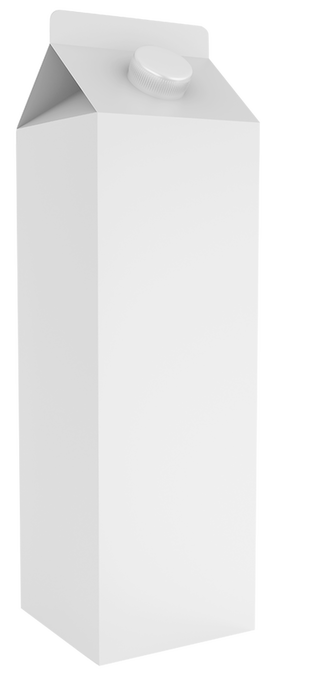
For big name brands, intelligent pack solutions are a key driver in encouraging consumer engagement. With the industry expected to grow at a rate of 7.5% annually, hitting $7.6bn by 2021, drinks brand owners have unprecedented opportunities for them to capitalise on. Packaging that reacts to touch or which allows consumers to engage with their beverage via a simple scan of their smartphone has become commonplace and brand-owners are equipped to share information on their packaging like never before.
Caspar Thykier, CEO and Founder of Zappar said: “With the consumer and packaged goods industry topping marketing spend in a recent Deloitte CMO Survey, it is clear that getting stand out on the shelf is a big brand focus. Marketeers are now turning to technologies like augmented reality to create opportunities for brands to revolutionise packaging and the way in which they connect and engage with their consumers. With consumers now spending over five hours on their smartphones daily, augmented reality (AR) holds a powerful and accessible way for marketeers to enhance packaging, drive deeper conversations with users, reach new audiences, and deliver more precise analytics and measurable results.”
Interactive features:
multiple levels of information
Packs may contain multiple levels of information from ingredients lists to hidden interactive features. “AR technology provides a bridge between physical objects and the digital world in real-time by using a smartphone or tablet and the Zappar app to bring content to life. Through AR, a brand’s story no longer stops at the back of a can or bottle. Brands can now tell their story in limitless space, with unlimited creative possibilities” Thykier explained.
“Linking AR to our customers’ digital brand strategy allows further insight into end-consumers”
One such example was a partnership between Zappar and SIG, a world leader in aseptic packaging, with the intention of innovating the long-life food and beverage category. As a first exploration of augmented reality, SIG were looking at a new product line based on a water carton as opposed to a water bottle. The environmental impact of a single serve plastic water bottle is very real and well documented. A recyclable aseptic carton could help to reduce waste and speak to a more environmentally conscious audience who still seek convenience. The use of AR helped bring this unique selling point to life whilst also highlighting the different product variants in the range.
Ace Fung, global product manager of SIG Combibloc said: “Our aim is to offer our customers a solution to get closer to their end-consumer and engage with them through the brand’s packaging design. This ‘smart packaging’ connects a product with the digital content and rewards consumers with relevant targeted content for taking the time to engage with a brand. Letting the consumer explore hidden content provides brands an excellent opportunity to improve brand awareness and strengthen brand loyalty. Linking AR to our customers’ digital brand strategy allows further insight into end-consumers.”
Creating a dialogue:
the journey between brand and consumer
Taking the consumer on a journey is a vital factor in creating a dialogue between the brand owner and the end-user. “Digital content is now leaps ahead through augmented reality, the supplementary information is provided in real-time – for example in 3D, as a game, video, text or animation. The advantage is that the information is made available right there and then, when it’s needed. AR opens up a whole new dimension of interaction between product and customer. Information is presented as infotainment – integrated into a modern packaging design and tailored to the relevant target audience and the relevant subject matter. Through this interaction, the consumer is immersed with a product more deeply than before, allowing simple information to become an experience” comments Thykier.
“As demonstrated, not only can AR drive sales for businesses, it can also improve frequency of consumption of product, assist in lead generation and data collection, bring to life the product away from a static image and increase social engagement” he continues.
Last year Jameson also took a leap into the near field communication (NFC) arena. The whisky campaign involved a limited edition bottle to mark St Patrick’s Day, in which the pack had a crest on it equipped with NFC technology, meaning when tapped by NFC enabled phones, users were granted access to instant prizes and giveaways. Taryn Casey, Global Head of Digital of Pernod Ricard said: “Capitalising on the development of the Internet of Things, Jameson is engaging with consumers in a new way, igniting a consumer-led desire for experiences from brands and products.”
Rapid development:
an end-to-end solution
Smart packaging, however does not always have to involve a smartphone or IoT. It can come in many different forms – tactile bottles and the sensory engagement being one of them. Engaging consumers through these elements can also generate interest.The beverage sector is one of the key growth areas for active and intelligent packaging going forward. “As the issues of scalability and cost are being overcome then incorporating multi-functioning A&IP components for, particularly, consumer engagement (connecting packaging to IoT provides incredibly useful metrics to Brand Owners and Retailers) will, we believe, increase rapidly in the next few years” said Andrew Manly, Communications Director of the Active and Intelligent Packaging Industry Association (AIPIA).
“Information is presented as infotainment”
Thykier said: “At Zappar we’ve been working with brands and businesses across the product and packaging supply chain to fully understand how best to deliver an end-to-end solution. A solution that can work within inline print production methodologies and at line speeds for code printing; that can understand the product design workflows through the product and packaging design phase; that can deliver an interface for the simple, efficient, fast, flexible, affordable and expressive delivery of content through an authoring and publishing platform; and finally can give real-time data analytics on a serialised basis. Our solution is fully scalable and future proofed. And it exists today. The future, it turns out, is now.”
Image Courtesy of Shutterstock